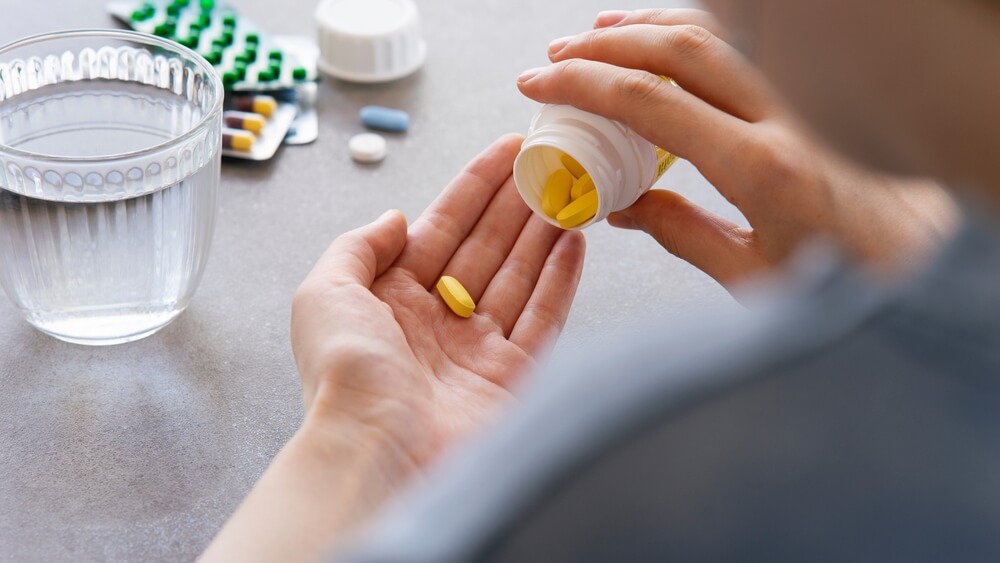Perplexing as it may seem, the ubiquitous antibiotic pills prescribed to fend off bacterial infections could potentially disrupt more than they were intended to. Although their primary role revolves around combating pathogenic bacteria, they often end up affecting our bodies beyond their initial scope – an under-examined instance being how antibiotics influence vaginal health.
Vaginal dryness, a seldom discussed yet significant ailment, is often associated with menopausal changes and low estrogen levels. Yet, a closer evaluation of the problem exposes a possible link to another common factor – the use of antibiotics. Unmasking this connection could be crucial for countless women globally who have been attributing their discomfort merely to age- or hormone-related changes. Contact experts in clinics such as My OBGYN Specialists for more information and professional advice on this topic.
This is an aspect of women’s health that demands attention due to the widespread use of antibiotics for various health conditions. With prescriptions so common, understanding the wider implications, including impacts on vaginal health, can empower individuals to make more informed healthcare decisions.
Read on to comprehend the multifaceted effects of antibiotics on the body, focusing on how they might lead to vaginal dryness and similar disturbances in women’s health.

Understanding Antibiotics
Brief History and Function
Antibiotics were introduced in the early 20th century, with the advent of penicillin, and have since revolutionized medicine by providing an effective countermeasure against bacterial infections. They function by either inhibiting bacterial growth or killing bacteria outright – a quality that has made them a cornerstone of modern medicine. Yet, while their utility cannot be denied, the side effects of antibiotics should also be considered.
Typically, we associate medication side effects with commonly noted issues like lethargy, digestive problems, or allergic reactions. However, an intricate web of effects stretches beyond those often listed on the label, with “vaginal discomfort antibiotics” or “antibiotics linked to vaginal dryness” being terms rarely connected. This reveals an important aspect of feminine health that is frequently overlooked – the impact of antibiotics on it.
Interactions within the Body
Antibiotics, though highly effective against harmful bacteria, can also impact the beneficial bacteria in our bodies. A healthy human body is a complex network of “good” microorganisms, that maintain a balanced ecosystem. This balance is particularly vital in areas like the vaginal microbiome, featuring a delicate community of bacteria – primarily consisting of lactobacilli – that help maintain an acidic environment, deterring pathogenic microbes.
However, the use of antibiotics can disrupt this delicate balance. The broad-spectrum nature of many antibiotics means they cannot distinguish between harmful and beneficial bacteria. Consequently, when antibiotics are consumed to combat an infection, they might simultaneously deplete the beneficial lactobacilli in the vagina. This can pave the way for opportunistic pathogens, potentially leading to conditions such as yeast infections or bacterial vaginosis.
This disruption can also result in symptoms associated with a decrease in lactobacilli, such as vaginal dryness. While it’s not always discussed, the occurrence of “dryness from antibiotics” or “antibiotics and female dryness” may be more common than expected. This represents medication-induced vaginal dryness – a potential side effect of antibiotics that contributes to the vagueness surrounding the causes of vaginal dryness.
The Link between Antibiotics and Vaginal Health
Direct Impact
Understanding the link between antibiotics and vaginal health calls for a closer look at the effect antibiotics have on the body. As highlighted earlier, antibiotics work primarily by destroying or inhibiting the growth of bacteria.
However, in the course of fulfilling their function, they are often indiscriminate, targeting beneficial bacteria alongside harmful ones. In a delicate ecosystem like the vaginal microbiome, a disruption of this sort can result in unwanted complications, a noteworthy one being vaginal dryness.
Studies suggest that “medication causing vaginal dryness” is a valid concern, particularly in relation to antibiotics which can significantly alter the bacterial composition within the vagina, leading to dryness symptoms.
This could further escalate into, what some call, “antibiotic-induced vaginal dryness,” a condition that may already be common, but certainly under-reported. Such revelations underscore the complex ways in which antibiotics interact with the body, and stress the importance of fully understanding these interactions to better safeguard one’s health.
Indirect Consequences
Vaginal dryness, though it may seem minor by name, carries with it a range of concerning secondary health issues. In addition to discomfort, it can lead to:
problems with sexual health, potentially straining relationships
devoid of the protective layer of beneficial bacteria to guard the vaginal environment,
more prone to various infections, resulting in a repetitive cycle of treating new infections with antibiotics.
The implications of antibiotic use ripple far beyond the immediate goal of treating an infection, and understanding these indirect effects can help shed light on the larger issue at hand. While antibiotics have countless benefits and remain essential tools in combating disease, they should be used judiciously and with full awareness of potential side effects.
While research has yet to firmly establish a direct causality between antibiotic use and vaginal dryness, the chain of events paints a fairly convincing narrative. An awareness of these possible “antibiotics and dryness symptoms” can pave the way for additional research, preventive measures, and mitigation strategies, ultimately leading to a more integrated and informed approach to health and well-being.
Management and Prevention
Medical Interventions
The potential side effects of antibiotics, particularly those affecting vaginal health, may seem daunting. However, various medical interventions can help manage antibiotic-associated vaginal dryness and prevent further complications. It’s important to remember that these interventions should be utilized under the guidance of a healthcare professional.
Probiotic supplements, for instance, are often recommended to replenish beneficial bacteria and maintain a healthy balance of vaginal flora. There are also topical estrogen creams that help foster a more favorable vaginal environment, alleviating symptoms linked to dryness.
Such a cream could potentially counteract the dryness of antibiotics. However, it is very important to consult with a healthcare provider before employing these treatments, to ensure their appropriateness considering one’s overall health status and compatibility with existing medications.
For those dealing with prescription meds and vaginal dryness, a dialogue with their doctor regarding concerns and potential side effects is highly encouraged. Remember, your healthcare provider is your partner in health, ready to offer guidance and solutions for a range of issues, including the unexpected impacts of antibiotics on feminine health.
Lifestyle Adjustments
Besides medical intervention, there are a variety of lifestyle adjustments that can be made to negate the possible negative impacts of antibiotics. This involves implementing changes to diet, hydration, and other daily habits that influence one’s health.
Increased hydration can help mitigate the dehydration from antibiotics, providing some relief from vaginal dryness. Additionally, a diet rich in fermented foods like yogurt, kefir, kimchi, and other probiotic-rich foods can assist in replenishing beneficial bacteria that antibiotics may have depleted. Regular exercise and stress reduction practices like meditation also promote overall health, potentially aiding in maintaining a balanced bacterial environment in the body.
Understanding the implications of antibiotic use and the potential ways it can affect vaginal health is the first step. Taking proactive measures to maintain a balanced bacterial environment despite treatment, and addressing any signs of discomfort linked to antibiotics, can ensure that you mitigate the side effects of such medication effectively.
Concluding Remarks
Fundamentally, antibiotics are a critical element of modern medicine and have brought us enormous strides in combating infectious diseases. Yet, as we delve deeper into the influence antibiotics exert on the body, we unmask a series of effects that aren’t always immediately apparent. One such connection that warrants our attention is the potential link between antibiotic use and vaginal dryness.
This resulting dryness is more than a mere inconvenience. It can lead to discomfort, sexual issues, and even heightened vulnerability to further infections. Such a cascade of potential complications arising from the use of antibiotics underscores the importance of using these medications wisely and makes a strong case for careful assessment of potential side effects.
The onus is not only on healthcare professionals but also on individuals, to approach antibiotic use with an informed perspective. The capacity to recognize potential side effects, including disruption to vaginal health, and to take preventive measures, could make a world of difference. Moreover, a proactive dialogue with healthcare professionals can ensure optimal handling of antibiotics, keeping potential complications in check.
In closing, it is worth noting that while antibiotics play a pivotal role in managing bacterial infections, it’s crucial to remain cognizant of their potential impacts on other aspects of health, particularly those unanticipated.
Knowledgeable antibiotic usage, coupled with proactive health management strategies, is key to maintaining the fine balance between benefit and risk when it comes to these powerful drugs. To become more knowledgeable, you will need the help of experts, so call us today and let us teach you more about your reproductive health!


